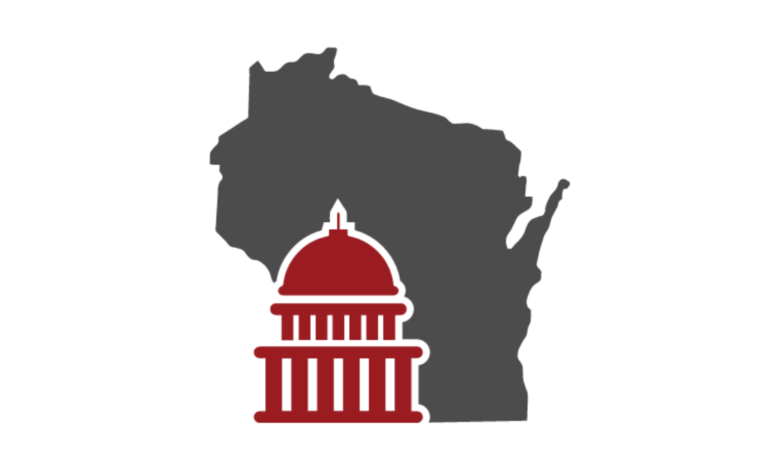International Cranes Foundation: Wisconsin Legislative Council Study Committee on Sandhill Cranes to hold its first meeting next week

July 25, 2024 – Baraboo, Wis. – The Wisconsin Legislative Council Study Committee on Sandhill Cranes is scheduled to hold its first meeting on Thursday, August 1, 2024, beginning at 10:00 a.m. at Horicon Marsh Education and Visitor Center (N7725 Highway 28, Horicon, WI), according to an agenda released today by the Legislative Council. The meeting is open to the public, and the International Crane Foundation urges those interested in the conservation of Sandhill and Whooping Crane to attend.
Anne Lacy, Director of Eastern Flyway Programs – North America, has been appointed to the Legislative Council Study Committee on Sandhill Cranes in the Wisconsin Legislature.
The committee, which is one of five study committees this year, is charged “to review and recommend options for legislation relating to the management of Wisconsin’s sandhill crane population,” according to the committee scope published by the Legislative Council.
Established in 1947, the Joint Legislative Council’s primary responsibility is to establish study committees to look at major issues and problems identified by the Legislature. Study committees do most of their work in the interim of even-numbered years. Members of the public with specific knowledge regarding the study topic may nominate themselves and others to serve on the committees.
“We are pleased to have been appointed to this committee and are hopeful for a serious discussion about how we can support the livelihoods of Wisconsin’s farmers with real solutions to solve crop damage by cranes, rather than hash out a plan for a crane hunt that won’t help farmers,” said Dr. Rich Beilfuss, President and CEO of the International Crane Foundation.
Committee members were approved Thursday with a 20-2 vote of the Wisconsin Joint Legislative Council and include representatives from the International Crane Foundation, Wisconsin Green Fire, and University of Wisconsin-Stevens Point, along with members of the farming community and hunting organizations.
“We are disappointed that fellow bird conservation organizations, including Southern Wisconsin Bird Alliance and Wisconsin Society for Ornithology, were not included,” said Beilfuss.
ICF leads research on crop damage solutions
The International Crane Foundation has worked in Wisconsin’s agricultural communities for three decades to resolve the issue of crop damage by cranes. In partnership with Arkion LLC, the Foundation helped develop Avipel seed treatment, which has been available to farmers since 2006. The seed treatment is a harmless, non-toxic substance, originally derived from plants, and that is applied to corn seeds before they are planted. Cranes avoid feeding on the treated, planted seed but remain in the field to feed on worms, insects, waste grains, and other food items.
“We know this product is effective at protecting both crops and crane habitat,” said Beilfuss. “I am hopeful that the Study Committee will offer a route for legislators to join us in making real solutions like Avipel easy and affordable for Wisconsin’s farmers.”
Hunting season is not a solution to crop damage
The Committee is to be led by Chair Rep. Paul Tittl (R-Manitowoc) and Vice Chair Sen. Romaine Quinn (R-Cameron). In 2021, Rep. Tittl sponsored a bill to authorize the hunting of Sandhill Cranes. The bill was ultimately not approved.
“Advocates for a hunting season on Sandhill Cranes have long promoted it as the solution to crop damage, but we know a hunting season is not going to help farmers,” Beilfuss said.
“We have three or more separate issues to address: crop damage by cranes, hunting cranes for recreational purposes, and crane-based tourism in Wisconsin. I hope we can look holistically at how best to support farmers and cranes,” he added.
The suggestion that the Wisconsin Department of Natural Resources (DNR) establish a hunting season for Sandhill Cranes has come up before the Wisconsin legislature several times in recent years. The most recently introduced bill set forth a $2 surcharge earmarked for the agricultural damage program. A fiscal estimate of the bill conducted by the DNR outlined that as many as 200 claims for crane-caused agriculture damage—totaling as much as $1.6 million—could be filed annually. Even with the issuance of several thousand crane hunting permits, this earmark would provide a mere fraction of the necessary support required to alleviate the cost of abatement or compensation.
Furthermore, a study led by Wisconsin researchers reveals that only 17.4 percent of Wisconsin residents support a crane hunting season, and less than five percent of Wisconsinites reported that they were very likely to participate in a crane hunt. The study also found that nearly half (47.6%) of Wisconsinites oppose a crane hunt, and nearly a third (29.6%) of Wisconsinites strongly oppose a crane hunt. The study was conducted using the University of Wisconsin Survey Center online panel WisconSays, which was scientifically developed to be representative of the state as a whole.
The International Crane Foundation (ICF) works worldwide to conserve cranes and the ecosystems, watersheds, and flyways on which they depend. We provide knowledge, leadership, and inspiration to engage people in resolving threats to cranes and their diverse landscapes. From its nearly 300-acre headquarters in Baraboo, Wisconsin, the ICF reach extends across the globe, with offices and staff in China, Uganda, Kenya, Zambia and South Africa, as well as Texas. It works through strong partnerships with local organizations, governments, universities, businesses and others in these regions. More than 125 ICF staff and associates work with a network of hundreds of specialists in 50 countries on five continents. The Foundation is committed to a future where all 15 of the world’s crane species are secure. Through the charisma of cranes, ICF envisions a future where people work together for wild crane populations and the landscapes they depend on – and by doing so, find new pathways to sustain our water, land, and livelihoods. Visit www.savingcranes.org for more information and to support the work of ICF.
Source link




